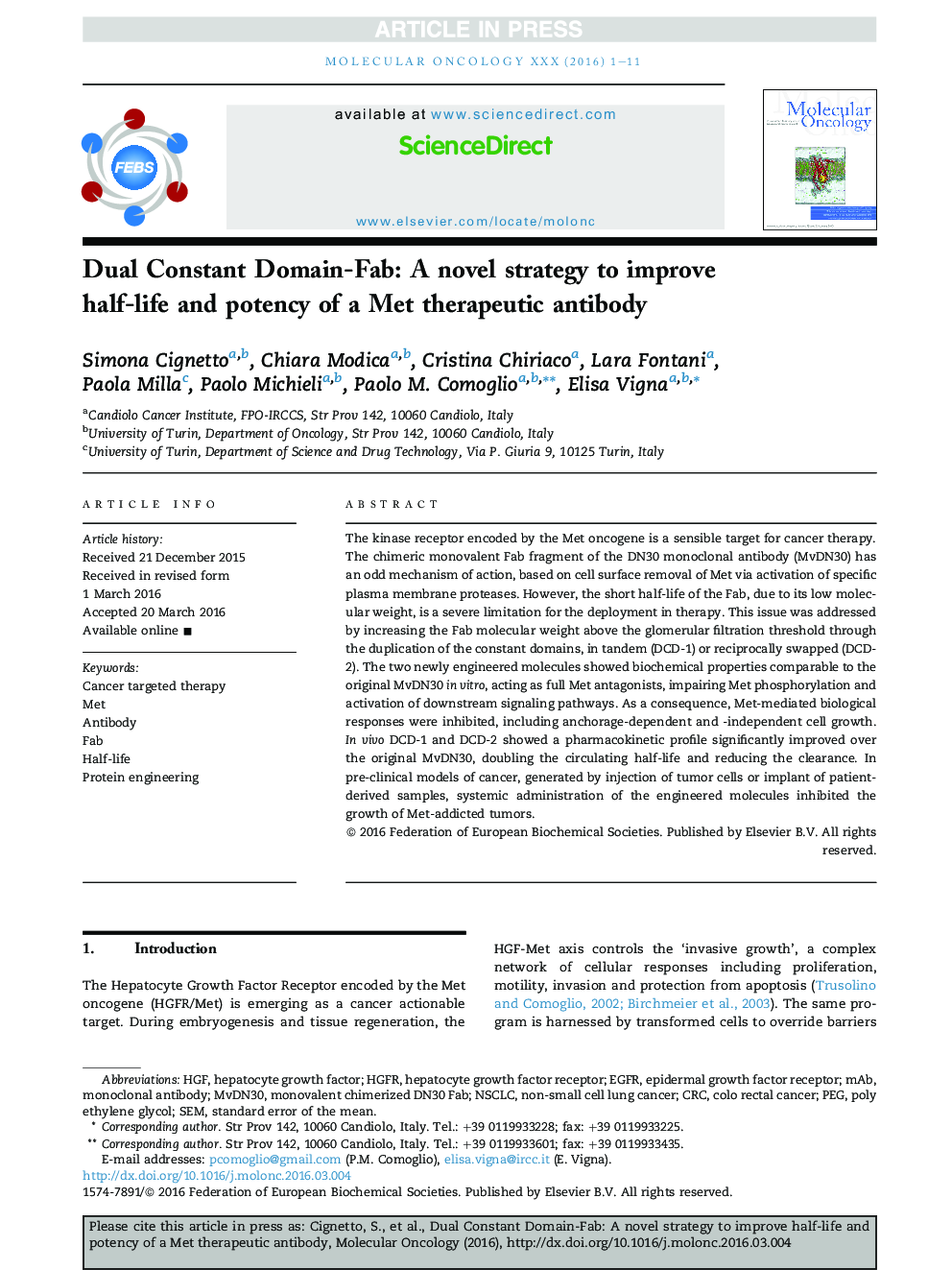| Article ID | Journal | Published Year | Pages | File Type |
|---|---|---|---|---|
| 10914527 | Molecular Oncology | 2016 | 11 Pages |
Abstract
The kinase receptor encoded by the Met oncogene is a sensible target for cancer therapy. The chimeric monovalent Fab fragment of the DN30 monoclonal antibody (MvDN30) has an odd mechanism of action, based on cell surface removal of Met via activation of specific plasma membrane proteases. However, the short half-life of the Fab, due to its low molecular weight, is a severe limitation for the deployment in therapy. This issue was addressed by increasing the Fab molecular weight above the glomerular filtration threshold through the duplication of the constant domains, in tandem (DCD-1) or reciprocally swapped (DCD-2). The two newly engineered molecules showed biochemical properties comparable to the original MvDN30 in vitro, acting as full Met antagonists, impairing Met phosphorylation and activation of downstream signaling pathways. As a consequence, Met-mediated biological responses were inhibited, including anchorage-dependent and -independent cell growth. In vivo DCD-1 and DCD-2 showed a pharmacokinetic profile significantly improved over the original MvDN30, doubling the circulating half-life and reducing the clearance. In pre-clinical models of cancer, generated by injection of tumor cells or implant of patient-derived samples, systemic administration of the engineered molecules inhibited the growth of Met-addicted tumors.
Keywords
Related Topics
Life Sciences
Biochemistry, Genetics and Molecular Biology
Cancer Research
Authors
Simona Cignetto, Chiara Modica, Cristina Chiriaco, Lara Fontani, Paola Milla, Paolo Michieli, Paolo M. Comoglio, Elisa Vigna,
